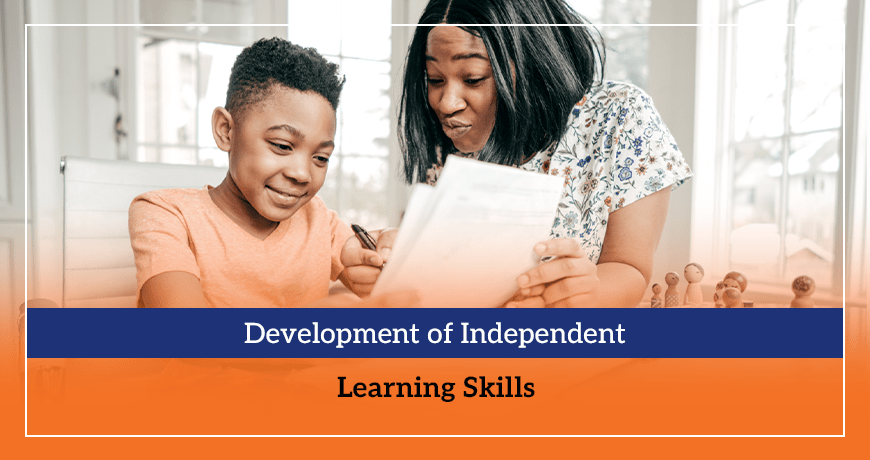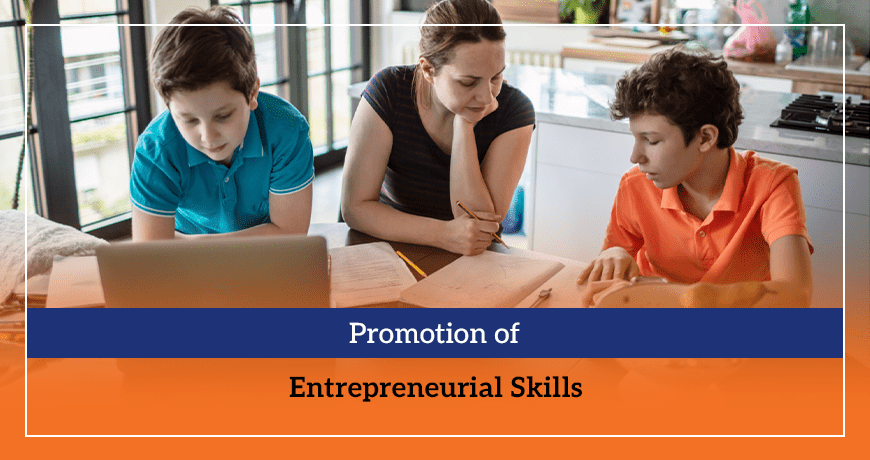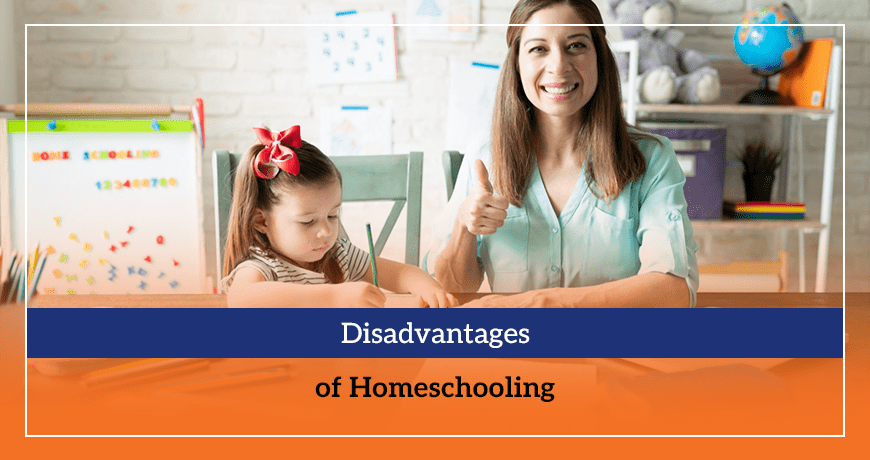Have you wondered why so many parents choose homeschooling for their children instead of sending them off to school? Homeschooling is a method of education for school-aged children at home conducted by parents, tutors, or online teachers. It has become increasingly popular in recent years, but homeschooling has been around for centuries.
The first recorded instance of homeschooling in the US goes back as early as 1647. In 2020, an estimated 2.5 million students were homeschooled in the US, around 5.2% of all school-aged children. So, let’s see the advantages and disadvantages of homeschooling.
10 Advantages of Homeschooling: An Exploration of the Pros and Benefits
1. Customizable Learning Experience
One of the main reasons parents choose homeschooling for their children is because of the customizable learning experience it offers. Parents and tutors can completely design the learning style as they see fit. Here’s how it works:
- Catering to individual learning styles: One of the core advantages of homeschooling is that it allows parents to tailor the learning experience according to each child's individual needs. It means children can learn in a way that feels most suitable for them.
- Flexible pacing: Homeschooling allows children to learn at their own pace. Meaning that parents can choose the pace at which their children learn. It is especially beneficial for children who are academically ahead or behind the learning curve.
2. Promoting Strong Family Relationships
- Increased Time Together: A great advantage of homeschooling for children is that it allows parents and children to spend more time together. This can be a great way to strengthen family ties with all the members and create long-lasting memories. It will help children grow emotionally stable and become good human beings.
- Shared Learning Experiences: This is a unique benefit only available in homeschooling that allows parents and children to share their learning experiences. As parents will help children explore their interests and learn new things, it can be a fun and rewarding way to learn and bond together.
3. Environment Control
- Limited Distraction: A significant advantage of homeschooling is that it does not expose children to the same level of distraction they would in a traditional school setting. It protects children from noise, other students, and a set schedule. Students who are homeschooled can learn in a more focused and relaxed environment, leading to better academic outcomes.
- Safer Learning Environment: Safety is an often overlooked benefit of homeschooling. Traditional schools cannot always ensure a safe learning environment because of bullying, gun violence, and other factors. But children are safer at their home, supervised by their parents or other adults. They are also not exposed to a large and crowded environment with many other students.

4. Development of Independent Learning Skills
- Self-Motivation: A key advantage of homeschooling is that it makes children often more self-motivated compared to traditionally schooled children. Homeschooled kids are responsible for their own learning and are somewhat in control of their education. This can build a strong sense of self-motivation, which will help them succeed in personal and professional life.
- Self-Discipline: Homeschooled children are often more self-disciplined. They generally become able to manage their own time, stay on task, and complete their work without being constantly supervised. So, it's an important benefit of homeschooling that helps them develop the skills they need to be successful in higher studies and professional life.
5. Experiential Learning Opportunities
- Field Trips: One of the benefits of homeschooling is that it allows children to learn in a hands-on way. They can visit historical sites, museums, and other places with their parents to learn and bring the curriculum to life. Field trips can be extremely joyful events that will help to build excitement for learning.
- Real-Life Applications: Children at homeschools often learn by applying what they do in real-life situations. So, it’s a practical benefit that all homeschoolers enjoy. This type of learning is often more meaningful, memorable, and effective. For example, they can learn how to cook or fix things around the house by doing them.
6. Tailored Environment for Special Needs
- Catering to Specific Learning Disabilities: Homeschooling can be a critical element for the learning process as parents can choose a curriculum and teaching method that are designed to address specific learning disabilities. It allows parents to tailor the instructions according to their children’s specific needs. This can have a huge impact on the children's ability to learn and succeed.
- Managing Emotional or Behavioral Issues: Parents can make a more supporting and understanding environment at home for their homeschooled children with emotional and behavioral issues. It makes them feel safe and secure, making it easier for them to learn and grow.
7. Avoidance of Negative School Environment
- No Bullying: Bullying has become a serious problem in many schools which can have a devastating impact on children’s emotional and mental health. Homeschooled children do not face bullying. As a result, they can develop healthier self-esteem and social skills, which is a great social benefit of homeschooling.
- Limited Peer Pressure: Peer pressure is another issue at schools, which can force children to make poor choices. However, children at homeschools are not likely to be heavily influenced by peer pressure. It will give them more freedom to make their own choices. So, it will benefit children with their mental health because of less peer pressure and healthy competition.

8. Promotion of Entrepreneurial Skills
- Real-life Skills: Children at homeschools often have more opportunities to learn real-life skills, which is a future-facing advantage of homeschooling. Learning skills like how to cook, clean, and budget can be essential for an entrepreneurial journey as homeschooling helps children become self-sufficient and able to manage their own business.
- Financial Literacy: Financial literacy is a crucial life skill that all children must possess. At homeschools, parents can teach financial literacy to their children, such as how to save money, invest, and start a business. It is essential knowledge for entrepreneurs who need to be able to make financial decisions correctly and manage their finances wisely.
9. Encourages Creativity and Critical Thinking
- Inquiry-based Learning: It is an intellectual advantage of homeschooling allowing students to learn at their own pace and focus on topics they are interested in. Inquiry-based learning is a type of learning process that encourages students to ask questions, explore ideas, and make their own discoveries. Children can freely ask questions to parents or tutors in a homely environment.
- Open-ended Projects: With open-ended projects parents or tutors can foster creativity and critical thinking in homeschooling children. These creative projects encourage children to explore topics in-depth and bring their own solutions to problems. It is also a hands-on learning experience for them.
10. Flexibility in Schedule
- No Set School Hours: Homeschooling children do not need to adhere to set school hours. They can learn at their own suitable time and take breaks when necessary. It’s a great relief for children with learning disabilities. For others, it’s a great lifestyle advantage.
- Opportunities for Travel: It is a unique benefit for homeschooled children that allows them to travel any time. Since they are not subject to school calendars, they can travel whenever they want. Traveling itself is an excellent way to learn about different cultures and experience new things in life.
You May Also Like the Following:

10 Disadvantages of Homeschooling: Uncovering the Cons and Negative Effects
1. High Parental Time and Energy Commitment
This is one of the most significant disadvantages of homeschooling as parents must spend a considerable amount of time preparing lessons, interacting with children, and evaluating their learning outcomes. It can be a load of work for parents who are not used to teaching.
Again, parents may have to take courses or workshops on how to homeschool their children or topics they will teach their children. It is an additional time and financial commitment.
2. Limited Socialization Opportunities
Homeschooled children do not have as many opportunities to interact with others as children who go to traditional schools, which is one of the key negative effects of homeschooling. It can lead to social isolation and loneliness for many children.
Children who are homeschooled often do not get exposure to many different perspectives. So, it can become difficult for them to develop critical thinking skills and understand the world around them.
3. Financial Burden
The financial burden homeschooling imposes on parents is a major disadvantage. That's because homeschooling materials and pretty expensive, especially if you want to purchase a comprehensive curriculum. Parents must also invest in textbooks, workbooks, lab equipment, etc.
If a parent has to stay home to homeschool their children, it can mean a loss of income for the family. It will surely put a financial burden on the other parent, more so if the family does not have adequate financial solvency.
4. Potential Gaps in Education
Parents can't have expertise in all subjects, which is one of the major disadvantages of homeschooling. As a result, children may have several gaps in their education. For example, parents who do not have a good command of science, will not be able to teach physics or chemistry.
On the other hand, homeschooled children may not be adequately prepared for standardized tests because of a lack of professional guidance. Standardized tests are crucial for college admission and higher studies.

5. Difficulty with College Admissions
The lack of traditional grades in homeschooling and limited access to guidance counselors is a potential negative effect of homeschooling. Universities and colleges require traditional grades and transcripts from students. However homeschooling families may not use the same grading system to evaluate their children's learning outcomes.
Traditional school-going students often get helps from guidance counselor when it comes to college admission. However, homeschooled children may not have access to it. So it becomes difficult for them to get the information and support they need.
6. Potential Isolation
Homeschooling children have limited exposure to social diversity as they do not have the opportunity to blend with different types of people in society. As a result, they do not get exposed to people from different backgrounds, cultures, and experiences.
In most cases, homeschooled children do not have access to team sports and clubs. So, it’s become difficult for them to make friends and develop social skills.
7. Strain on Family Relationships
It can be a huge task for homeschooling parents to maintain a balance between the parent and teacher role. Parents might find it difficult to separate the two roles and do well in both. So, it can create conflict between parents.
Parents and children have to spend many hours together in homeschooling. It has a potential negative impact on their relationship. If they do not get along well, this can lead to increased conflict between the family members.
8. Regulatory Challenges and Lack of Support
Different states have different homeschooling laws, some states have very few requirements while others have stricter rules. However, it can be a massive disadvantage if parents are not familiar with or unable to comply with the laws.
It is a fact that homeschooling children have limited resources compared to traditional school-going students. It can include resources like libraries, computer labs, science labs, etc. Homeschooling parents have to invest on their own for these resources.
9. Difficulty in Transitioning to Traditional Schools
Homeschooling children may face major difficulties in transitioning to traditional schools. It can be in terms of social challenges and academic adaptation. Homeschooled children may find it difficult to socialize with other students in a new environment.
It is also difficult for them to adapt to the new curriculum and learning style. Traditional schools have a fixed curriculum with a fixed syllabus. So, homeschooled children may struggle to cope it with.
10. Lack of External Validation
A major potential negative effect of homeschooling is the lack of external validation. Children may not have a competitive mindset in homeschooling since there is nobody to compete with.
Again, the learning outcomes of homeschooled children are evaluated by the parents or tutors only. It limits the feedback from different perspectives, which can be a disadvantage for children's growth.
Conclusion
As you can see, there are many significant advantages and disadvantages of homeschooling. As a parent, you have to balance between the benefits and disadvantages to understand whether it's a good thing for your children. Just remember- it will be convenient as you can teach your child in a safe and suitable environment with potential negative impacts like lack of social skills.